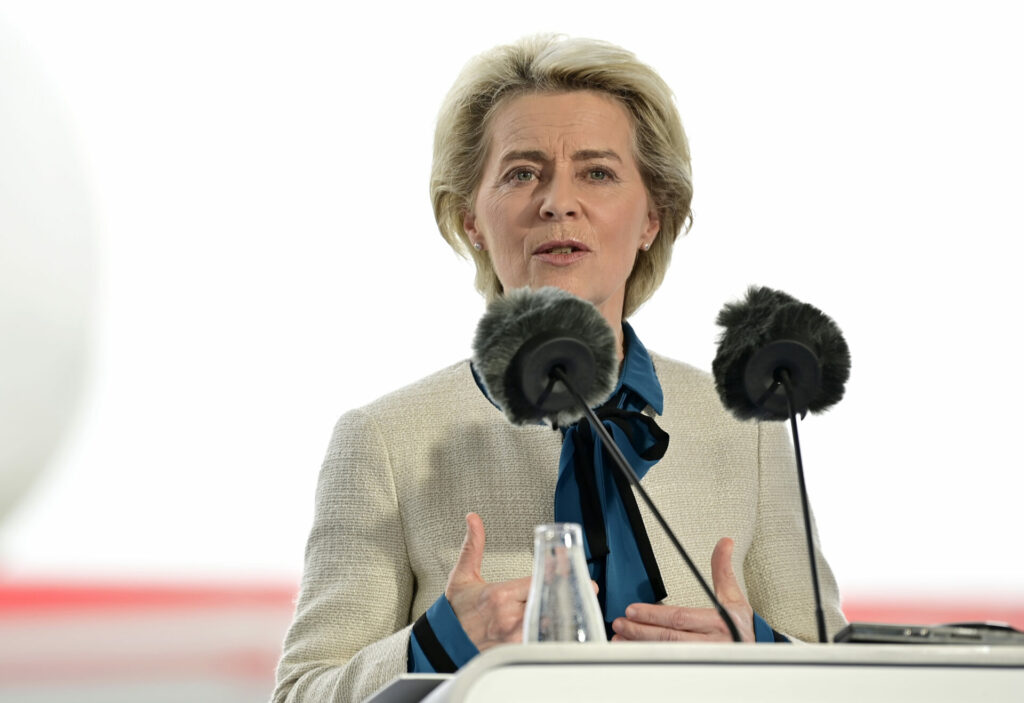The EU is planning to impose a tenth round of sanctions on Russia before the first anniversary of its invasion of Ukraine on 24 February, European Commission President Ursula von der Leyen announced during a visit to Kyiv on Thursday.
"We will introduce with our G7 partners an additional price cap on Russian petroleum products and by February 24, exactly one year since the invasion started, we aim to have the tenth package of sanctions in place," von der Leyen said.
She added that existing EU sanctions on Russia — which include bans on gold, oil, and coal imports — currently cost Moscow up to €160 million a day: "Today, Russia is paying a heavy price because our sanctions are eroding its economy and setting it back a generation."
In addition to the new round of sanctions, EU High Representative for Foreign Affairs Josep Borrell formally announced that the bloc will double the number of Ukrainian troops receiving EU military training to 30,000, and that €25 million in EU funds will be provided to remove landmines in territory recently liberated by the Ukrainian army.
Since Russia's invasion, the EU has provided €50 billion in direct support to Ukraine, including €12 billion in military aid.
Scourge of corruption
Both von der Leyen and Borrell are in Kyiv for the Ukraine-EU summit, which will be held on Friday. In addition to military aid, topics to be discussed will include Ukraine's potential accession to the EU, after the country was officially granted EU candidate status in June last year.
One major sticking point between the EU and Ukraine concerning the latter's membership, however, is European officials' concern over the continued high level of corruption in Ukraine. Indeed, just last week four Ukrainian deputy ministers and five governors were dismissed or resigned from their positions over graft allegations, including Deputy Defence Minister Vyacheslav Shapovalov.
During a joint press conference with Ukrainian President Volodymyr Zelenskyy, von der Leyen suggested that the recent scandal, rather than constituting a cause for concern, in fact provides evidence that Ukraine is undertaking serious efforts combat corruption.
"I'm comforted to see that your anti-corruption bodies are on alert and effective in detecting corruption cases," she said, speaking directly to Zelenskyy. "I commend you on reacting so rapidly at the political level to make sure that the fight against corruption is delivering tangible results and is further stepped up."
Related News
- EU to train additional 15,000 Ukrainian soldiers
- EU officials warn Ukraine of 'no shortcuts' to Union membership
It is, however, at best unclear whether Zelenskyy is entirely suited to the role of tackling corruption within Ukraine.
Just months before Russia's February invasion, The Guardian revealed that Zelenskyy — who won in a landslide election in 2019 after running on an anti-corruption platform — held several lucrative offshore assets, held through "a sprawling network of offshore companies" registered in Belize, Cyprus, and the British Virgin Islands.
"On the campaign trail, Zelenskyy pledged to clean up Ukraine’s oligarch-dominated ruling system [and] he railed against politicians such as the wealthy incumbent Petro Poroshenko who hid their assets offshore," The Guardian reported. "The Pandora Papers... however, suggest Zelenskyy is rather similar to his predecessors."

